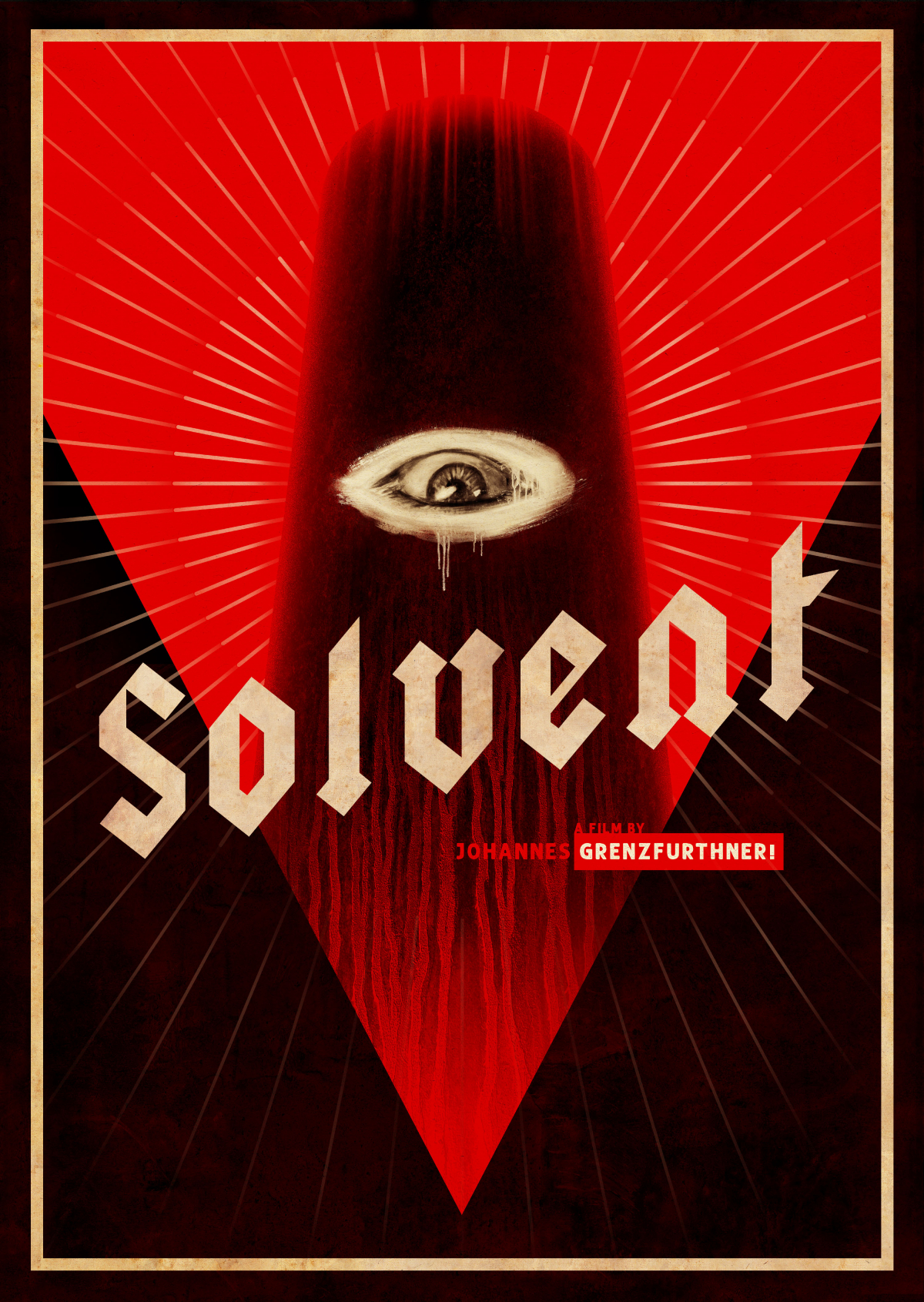
As the end credits roll by for Solvent, an awe-inspiring pseudo-documentary, you'll be relieved to learn that "no mice, dicks, or feelings were hurt in the making of this film." I was indeed worried about the rodent.
The credits also note that "some pipe shots were taken in the plumbing system of Castle Leopoldskron in Salzburg, the film location of The Sound of Music." One can hear the Trapp Family slightly tossing in their caskets. (We'll get to those pipes in a second.)
Director/co-writer Johannes Grenzfurthner has noted that his latest filmic oddity is a spiritual successor to his two previous works, Making Threshold (2021) and Razzennest (2022). On experiencing Threshold at Festival Maudit, I was inspired to write: "With one of the best screenplays of recent years, . . . this deliriously witty, yet highly discomforting film is a wry, dissective look at modern society's derangement." The hero of that effort, a polymath, was searching for a cure for his extreme tinnitus utilizing worms, fungi, and a polyester shirt. He was shackled with a boyfriend who was an alcoholic acupuncturist and was also a bit of a pessimist: "If life gives you lemonade, inspect it closely. It might be piss."
Well, after enveloping myself in Solvent's similarly addictive frenziedness, I find myself once again writing: “This deliriously witty yet highly discomforting film is a wry, dissective look at modern society's derangement."
Solvent, however, has a slightly more optimistic hero: Gunner S. Holbrook (John Gries), an American former mercenary and recovering Catholic whose face we never view except for a quick snapshot. You see, he’s the head of a sort of documentary/research team, and he’s almost always behind the camera. His hands, his legs, and his private parts, though, do make appearances now and then.
The film opens in lower Austria on March 8, 2023, at 7:00 AM with Holbrook, his blonde academic Polish girlfriend Krystyna Szczepanska (Aleksandra Cwen), and several production aides setting up across from the farm of a former Nazi, Wolfgang Zinggl. Zinggl was involved with Chelmno, the first stationary facility where poison gas was used for the mass murder of Jews. (Please note there is frequent usage of Holocaust footage, mostly in photos and seconds-long clips, integrated throughout Solvent.)
Unpunished for his crimes against humanity, Zinggl apparently disappeared in 2014, and no one knows what happened to the gent who outwardly led a "normal" life after the war. Not even his grandson Ernst Bartholi (played by the director), who runs a woke PR boutique, has any answer. He does note of his relative, "[Gramps] never hit me. He was a nice guy," although admittedly, during the last years of Gramp's life, the man "became kookier and kookier." Rumors abound that a nearby swamp swallowed him up, and he is now haunted by his ghost.
What other ending would you propose for a man who often hung pigs from a door and then castrated them? His cats apparently enjoyed the tidbits Zinggl scattered on the ground. (Two butchers are also listed in the credits.)
Anyway, what Holbrook's group is after is the Nazi's "Judenkiste" (Jew Box), a container said to contain documents and personal accounts of those who died at Chelmno.
Well, where can such a container be hidden? In the Nazi's house? Entering the abandoned home, Holbrook and crew, attired in hazmat suits, discover a porn collection, banana-flavored antidiarrheals, and much untidiness. No box. So, was this venture going to be a complete loss?
A curious, buffoonish neighbor pops by and asks whether anyone has checked out Zinggl's wine cellar across the road? What wine cellar?
At full gallop, the squad rushes over into the dark, musky oenophile's liquor dungeon, but is anything there of importance? Not at first glance. Just an ordinary-looking pipe sticking up in the middle of the floor. Cold air seems to be escaping from this eerie metal cylinder. Is this proof of another room below? If so, what will happen if you twiddle with this inanimate metal curiosity? Or worse, if you lower a camera through the pipe into the cellar's lower depths? Oh, no!!!
What follows defies easy categorization. There is horror, comedy, surrealism, underground absurdity, and even a dash of romance, but these genres are called upon to do more than entertain. Along with his co-writer Ben Roberts, Grenzfurthner unites every aspect of filmmaking with his encyclopedic knowledge of science, history, and philosophy to expose how historical violence and hatred have refused to remain historical. Croatia, the Middle East, and Bolivia are among the areas that get a current nod here.
As the director notes in Solvent's press notes: "The film's grotesque imagery underscores its themes, depicting the twisted and deformed nature of the past that shapes our present. While Solvent features an artistically exaggerated core, it diverges from typical horror films that use Nazis as central motifs. My goal is to use this stylized approach to explore the enduring effects of Nazi ideology and its infiltration into modern society."
Grenzfurthner succeeds grandly.
(Solvent won "The Film from Hell (Best of the Fest)" award at the Nightmares Film Festival 2024.)
